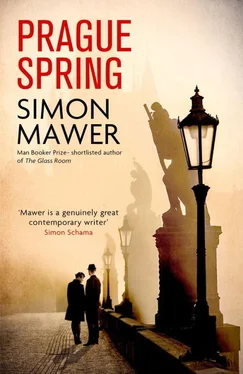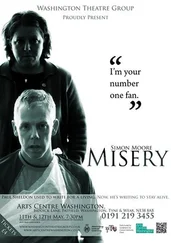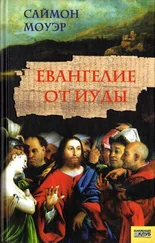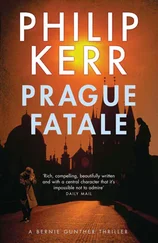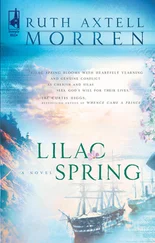After the meeting they went to a well-known pivnice a few streets away where, it was said, Bohumil Hrabal would come in for a glass of Pilsner most days. ‘They say that about every pub in the city,’ was Sam’s view. ‘He’d be pissed as a newt if it were true.’
Pissed as a newt. Lenka laughed at his attempts to provide a translation. They found an unoccupied alcove where they could talk. Beer came. They drank a bit, looking at one another all the time, finding out how things were as much by glance and manner as by words. Lenka was at the university, doing a master’s degree in English. Why English? That shrug. Because it’s not Russian. He laughed. And she did some writing for one of the literary journals that had sprung up like mushrooms feeding on the rich humus of free speech. And the occasional piece for Czechoslovak radio. She was twenty-five years old, which made Sam feel almost fatherly; but she knew things far beyond her two and a half decades, he could see that. The conversation soon veered away from the personal to politics. Politics were on everyone’s lips, how things had changed since censorship was abandoned and where things might go next. What would happen when Dubček and his supporters confronted Brezhnev and the rest of the Soviet Politburo. ‘So what does Mr Samuel think will take place?’ Lenka asked. ‘All we want is to continue with free expression. Freedom to say what the hell we please and do what the hell we please. Will they let us?’
‘Depends what you say and what you do.’
‘We don’t know in advance. That’s what makes it so exciting.’
Sam considered the matter carefully, as though he had been asked it by the Head of Chancery. ‘The Party has made its decision, hasn’t it? Abandoning censorship was the point of no return.’
‘They could try to bring it back.’
‘Difficult to put the genie back in the bottle.’
‘Maybe the Russians will force them?’
‘I don’t think the Soviet Politburo really knows what to do at the moment. They’ve got troops left here since the spring manoeuvres and they don’t know whether to withdraw them or not. There are various currents within the Kremlin itself, although Brezhnev himself is a hawk and he’s the one who really matters. But there are other issues to consider, like the other Warsaw Pact countries, the fraternal allies. Romania, for example. What will Ceaușescu’s position be? And Hungary’s? Kádár needs to be brought on board. I imagine a lot of his sympathies are with Dubček. So any final decision is balanced on a knife-edge. But of course the main players are the Russians.’
Lenka laughed, running fingers through her hair. ‘You know what I think? I think, fuck Russians. And fuck the fraternal allies.’ That frank wide-open gaze. He had that feeling again, clotted at the base of his throat, like a sudden growth.
‘What about lunch,’ he suggested, not wanting this encounter to die. ‘I must get back to the office now but what about tomorrow? Let me buy you lunch tomorrow. I’ve got a meeting at the foreign ministry in the morning. And then…’
She took a moment to consider, as though assessing him and the implications of his invitation. When she answered, her tone seemed almost indifferent. ‘Why not?’
The Černín Palace guards its secrets as assiduously as a bank guards its vaults. Home to the Czechoslovak ministry of foreign affairs, the building sits across the ridge of land outside the gates of Prague Castle, the Hrad, as though blocking the way from the Castle to the West and freedom. Not for nothing had it been the seat of the Reichsprotektor of Bohemia and Moravia during the Nazi occupation. But the biggest secret of all, hidden within the walls of this monstrous, monotonous building, was the one that stood prominently in Sam’s mind whenever he had an appointment here. It concerned the fate of Jan Masaryk, son of the first president of independent Czechoslovakia, Tomáš Masaryk, and it came down to the question: did he jump or was he pushed?
By March 1948 Masaryk, who had spent the war in London with the Czechoslovak government in exile, was foreign minister of the Czechoslovak Republic. More than that, he was the only non-communist minister not to have resigned in protest at the communist power grab of February. He was also middle-aged (sixty-one), lonely (a divorcee), mentally fragile (bipolar disorder) and disillusioned (who wouldn’t be?). In the early morning of 10 March his body was found lying on the paving of an inner courtyard of the Černín Palace. He was wearing pyjamas and lay forty-seven feet directly beneath the open bathroom window of his official apartment on the third floor.
Did he jump or was he pushed?
Two decades later, Sam Wareham walked over to the window of the anteroom and looked down on that selfsame courtyard. Bright sunlight dissected the space with sharp diagonals of shadow. Small ornamental trees. Basalt paving stones. Somewhere down there Jan Masaryk’s body had lain on that cold March morning.
Did he jump or was he pushed?
Outside the anteroom, in the corridors of the ministry through which Sam had been led by a uniformed flunkey, was the kind of chaos one expects in a beehive threatened by a bear. People hurried from office to office clutching files. Phones rang the second the receiver was replaced. Meetings were scheduled and rescheduled, then broken off because something more important had just cropped up. Oblivious to all this, Sam stood at the window and wondered.
Did he jump or was he pushed?
The popular feeling was, of course, that Masaryk had been pushed. Such a tidy man, they said with bitter irony, he had even made sure to close the window behind him.
That was the joke.
On the other hand, a number of friends and most of his relatives refused to accept this idea. Appalled at the political situation of the country and the dilemma in which he found himself, they said, Jan Masaryk took the honourable way out. Even his sister believed this. Yet the question remained, unanswered when Sam Wareham waited for his meeting, unanswered now, unanswered presumably for as long as vital files locked away within the former KGB archives in Moscow remained hidden from public scrutiny (which could be for ever): did he jump or was he pushed?
Prague is famous for its defenestrations. The first was in 1419 when a Hussite mob broke into the New Town Hall and threw a baker’s dozen of burghers to their deaths; the second was two hundred years later, when two imperial officials and their secretary were tossed out of a window of the Hrad. The first led to the fifteen-year Hussite Wars, the second to the devastating Thirty Years War. Both were about religion. The third defenestration was that of the liberal, saddened, disillusioned minister of foreign affairs, Jan Masaryk.
What did his defenestration lead to?
The man Sam Wareham was to meet, a harassed and confused apparátník who had somehow kept his job throughout the upheavals of the last year, apologised for having kept him waiting. ‘We are, as you can see, at the eye of the storm.’
Eyes of storms were, as far as Sam knew, places of great and sinister stillness, but there was no time to unpick mixed metaphors. Instead they could only deal with the matter in hand – an imminent visit to Prague by a British trade union group. There was this factory tour that had to be curtailed, that meeting which needed to be rescheduled.
Sam nodded and noted. ‘I’ll let His Excellency know of the changes.’
‘You know how it is, Mr Wareham, don’t you?’
‘Of course I do.’ Which wasn’t really true, but it was not too difficult to put himself in his opposite number’s place. After all, the Russian bear was right outside the hive. While all the little bees were panicking you could hear his heavy breathing. And yet… and yet at the end of the meeting he, Samuel Wareham, a First Secretary at Her Britannic Majesty’s Embassy to the Czechoslovak Socialist Republic, could walk out into the sunshine of Hradčaný and stroll down the road into Malá Strana with the thought of what the Russians might or might not do no more than a distant irritation. This city might be rendered drab by the dead hand of communism, but still it remained, quite simply, the most beautiful in Europe.
Читать дальше
